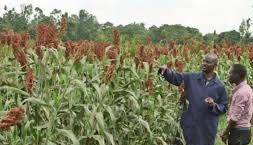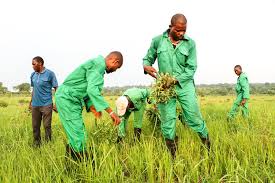In the last article, Agricultural Extension was defined as the extension of knowledge to the clientele. The nature of Agricultural Extension was also considered.
In this article, the scope of Agricultural Extension will be discussed, alongside the objectives of Agricultural Extension and the reasons for limiting Agricultural Extension work to a communicational and educational role.
Scope of Agricultural Extension
Agricultural Extension is the primary process through which farmers learn why they must change their attitudes and practices. It does not only involve farmers directly engaged in production, such as cultivation practices, but also includes those involved in the processing and marketing of agricultural products.
Extension emphasizes working with people rather than for them. It helps address problems that people themselves recognize and also teaches individuals to recognize conditions previously overlooked as problems, along with possible solutions. Thus, Extension teaches people to recognize what they need and how to work out ways to satisfy these needs.
Extension does not only involve taking research findings to farmers but also brings farmers’ problems to researchers, assisting in the formulation of activities designed to address the ever-increasing challenges faced by rural communities.
Agricultural Extension also involves leadership development in communities. Since it works with the whole family and employs a participatory approach, the “learning by doing” concept is utilized. Given the nature of Extension work, it requires leadership, and as such, it helps instill the principles of leadership among people by selecting leaders from within the community.
Community development is another area in which Agricultural Extension is involved. It mobilizes community members to improve their collective resources, which in turn positively impacts their production systems.
Youth development is a critical area of Agricultural Extension as well. The youth are encouraged to form clubs and organizations to exchange ideas, making them more useful to themselves and their communities. This also helps discourage rural-urban migration and retains labor for agricultural production.
Extension also focuses on character change, influencing people’s attitudes to encourage progress toward higher standards of achievement and living in an increasingly complex society.
Additionally, Extension is involved in homemaking (domestic science) and other aspects of rural living, promoting holistic development within communities.
Read Also: 11 Medicinal Health Benefits of Barbarea vulgaris (Yellow Rocket)
Objectives of Agricultural Extension

The primary objective of Agricultural Extension is to work with people rather than for them. Its aim is to build the capacity of the clientele to be resourceful and develop the ability to take initiatives.
The task of Agricultural Extension is to help rural people utilize science or innovations that are tested and viable in their daily activities to improve their livelihoods.
It also seeks to instill in the clientele the ability to identify problems, prioritize them, and develop solutions. This includes fostering teamwork and building a team spirit among community members.
Agricultural Extension helps rural families, in particular, to apply science to their daily routines in farming, homemaking, and other aspects of rural living.
Read Also: 11 Medicinal Health Benefits of Yellow Water-lily (Nuphar Advena)
Limitations to the Task of Agricultural Extension

Several factors limit the effectiveness of Agricultural Extension in Nigeria:
1. Inadequate Supporting Services: There is often an insufficiency of farm inputs for farmers, and when they are available, they are not supplied in a timely manner to support the technologies being introduced.
2. Low Morale Among Extension Officers: Due to poor pay and lack of a conducive working environment, extension officers often experience low morale. Since the withdrawal of World Bank funding for the Agricultural Development Projects (ADPs) in Nigeria, many state governments have been unable to adequately fund extension services.
3. Inadequate Training for Staff and Farmers: Despite changing trends in Extension approaches, staff and farmers often receive insufficient training, limiting the effectiveness of participatory approaches.
4. Weak Linkages Between Stakeholders: There are weak connections between Extension organizations, research institutes, universities, and other stakeholders in the agricultural sector. As a result, research is not sufficiently focused on addressing the unique needs of farmers.
5. High Extension-Farmer Ratio: The extension-to-farmer ratio in Nigeria is about 1:1722, which is quite high. This lack of adequate attention to Extension services has left many farmers unreached and unaware of new technologies that could enhance their performance.
6. Financial Constraints: Financial support for Extension work has been inadequate. Government and related agencies have not effectively funded Extension services, leading to insufficient budget allocations for purchasing equipment and materials needed for Extension activities. This negatively impacts the morale of Extension workers and limits their ability to carry out their duties.
7. Lack of Effective Evaluation: There is still an issue with the effective evaluation of most agricultural Extension programs. When programs are completed, they are often poorly evaluated, leading to the repetition of past mistakes.
Agriculture, through its Extension services, is tasked with expanding the frontiers of knowledge to rural communities. It emphasizes working with people rather than for them, empowering them to identify and solve their problems while enhancing youth, community, and leadership development.
However, the effectiveness of Agricultural Extension is hindered by factors such as poor funding, inadequate training, and a lack of proper evaluation of implemented programs.
Do you have any questions, suggestions, or contributions? If so, please feel free to use the comment box below to share your thoughts. We also encourage you to kindly share this information with others who might benefit from it. Since we can’t reach everyone at once, we truly appreciate your help in spreading the word. Thank you so much for your support and for sharing!

